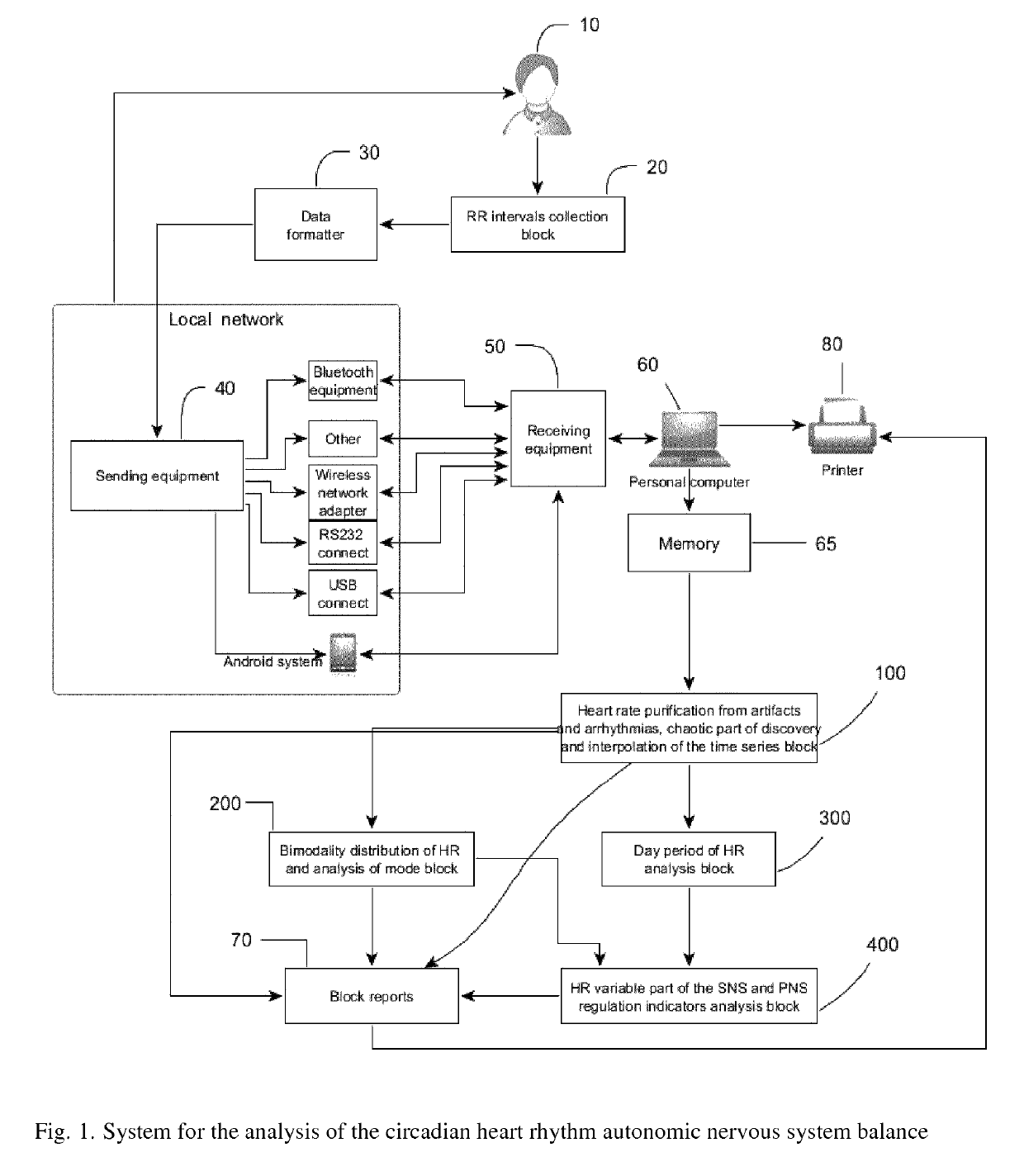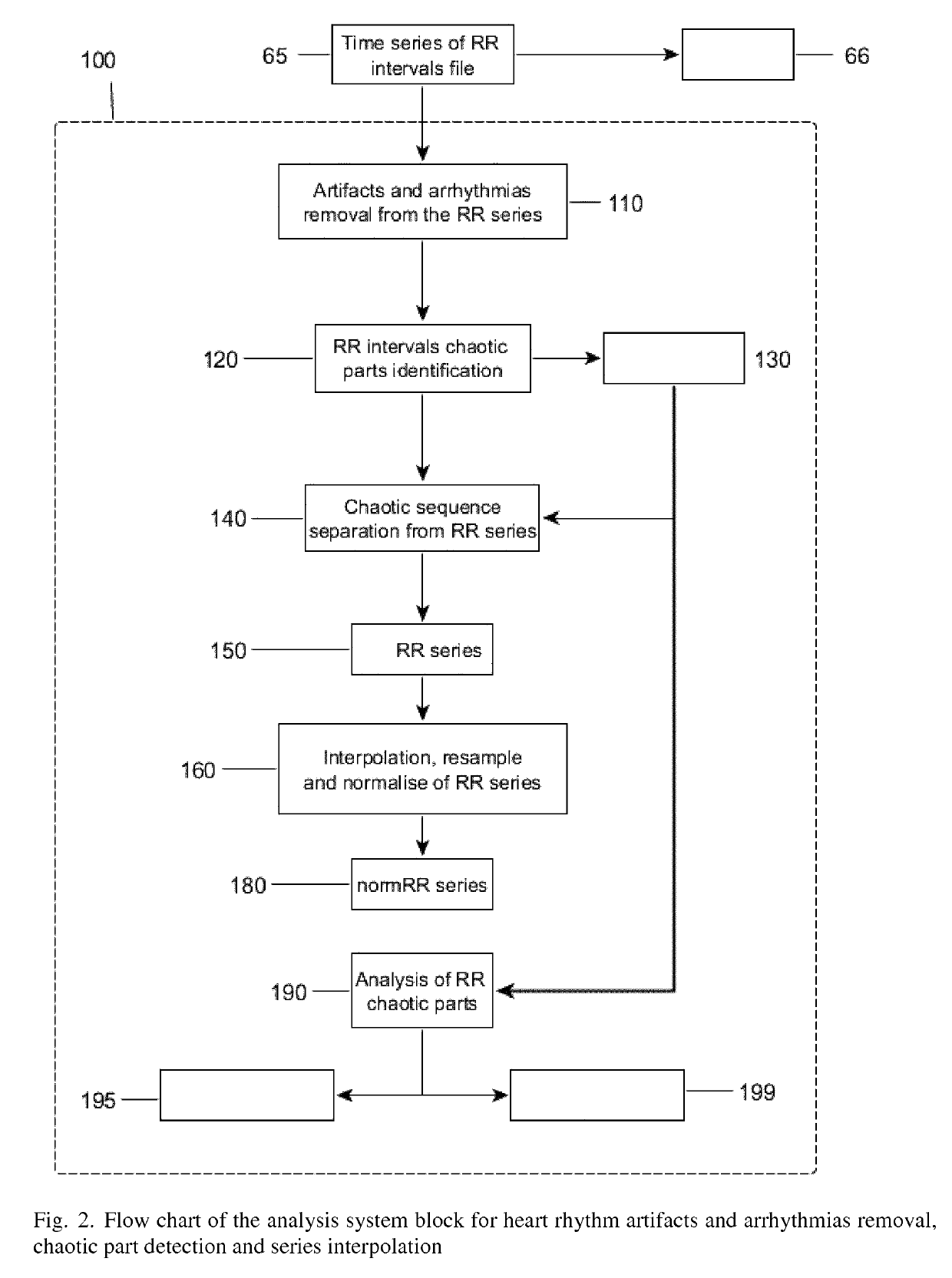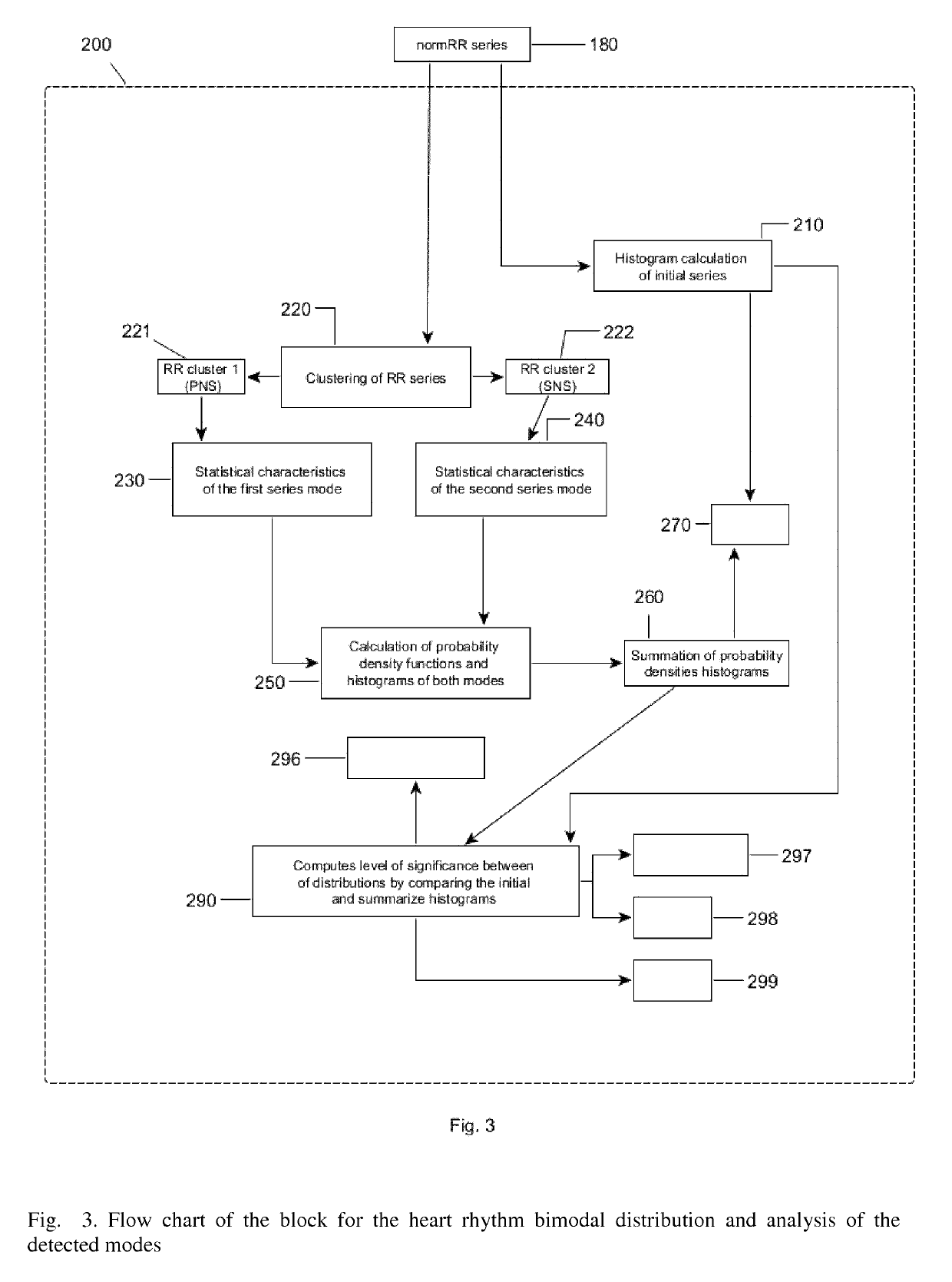System for the analysis of the daily heart rhythm autonomic nervous system balance
a technology of autonomic nervous system and daily heart rhythm, which is applied in the direction of measuring/recording heart/pulse rate, medical automation diagnosis, sensors, etc., can solve the problems of unsteady and hardly reproducible hr regulation by sns and pns, and the investigation of the low frequency component currently gives rise to doubts and criticism
- Summary
- Abstract
- Description
- Claims
- Application Information
AI Technical Summary
Benefits of technology
Problems solved by technology
Method used
Image
Examples
Embodiment Construction
)
[0075]A subject's (10) physiological signals enter heart rhythm RR interval collection block 20 (FIG. 1) where digital values of signals are placed with at least at 512 Hz discretization frequency. Block (20) is able to collect only signal values or employ software that could be able to produce durations of the heart action periods. Signal transmission from the block (20) to the data formatter (30) is performed after completion of daily data collection adding starting time and completion time (timer). Signals in the format of the selected data from the data formatter (30) though local network sending equipment (40) are transmitted to various computer network receiving equipment (50) which enables their storage in the computer (60) memory (65). Subsequently computer processes data received and transmit them to the report block (70) and printer.
[0076]The order of the processing of data downloaded to the memory 65 is detailed below. The RR interval series file from the memory 65 is tr...
PUM
 Login to View More
Login to View More Abstract
Description
Claims
Application Information
 Login to View More
Login to View More - R&D
- Intellectual Property
- Life Sciences
- Materials
- Tech Scout
- Unparalleled Data Quality
- Higher Quality Content
- 60% Fewer Hallucinations
Browse by: Latest US Patents, China's latest patents, Technical Efficacy Thesaurus, Application Domain, Technology Topic, Popular Technical Reports.
© 2025 PatSnap. All rights reserved.Legal|Privacy policy|Modern Slavery Act Transparency Statement|Sitemap|About US| Contact US: help@patsnap.com



